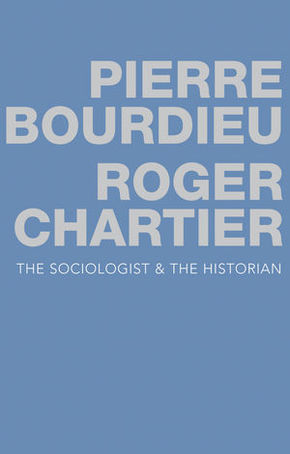
The Sociologist and the Historian
| Verlag | Wiley & Sons |
| Auflage | 2015 |
| Seiten | 100 |
| Format | 21,6 cm |
| Artikeltyp | Englisches Buch |
| EAN | 9780745679594 |
| Bestell-Nr | 74567959EA |
In 1988, the renowned sociologist Pierre Bourdieu and the leading historian Roger Chartier met for a series of lively discussions that were broadcast on French public radio. Published here for the first time, these conversations are an accessible and engaging introduction to the work of these two great thinkers, who discuss their work and explore the similarities and differences between their disciplines with the clarity and frankness of the spoken word.
Bourdieu and Chartier discuss some of the core themes of Bourdieu's work, such as his theory of fields, his notions of habitus and symbolic power and his account of the relation between structures and individuals, and they examine the relevance of these ideas to the study of historical events and processes. They also discuss at length Bourdieu's work on culture and aesthetics, including his work on Flaubert and Manet and his analyses of the formation of the literary and artistic fields. Reflecting on the differences betwee n sociology and history, Bourdieu and Chartier observe that while history deals with the past, sociology is dealing with living subjects who are often confronted with discourses that speak about them, and therefore it disrupts, disconcerts and encounters resistance in ways that few other disciplines do.
This unique dialogue between two great figures is a testimony to the richness of Bourdieu's thought and its enduring relevance for the humanities and social sciences today.
Inhaltsverzeichnis:
Preface vii
1. The Sociologist's Craft 1
2. Illusions and Knowledge 19
3. Structures and the Individual 36
4. Habitus and Field 51
5. Manet, Flaubert and Michelet 6
Rezension:
"These dialogues have been compiled for the first time in English and are a welcome return to Bourdieu's groundbreaking thinking... Bourdieu comes across as a lively and multidisciplinary scientist who, in questioning the architecture beneath actions, has genuinely introduced the possibility for freedom."
Morning Star
